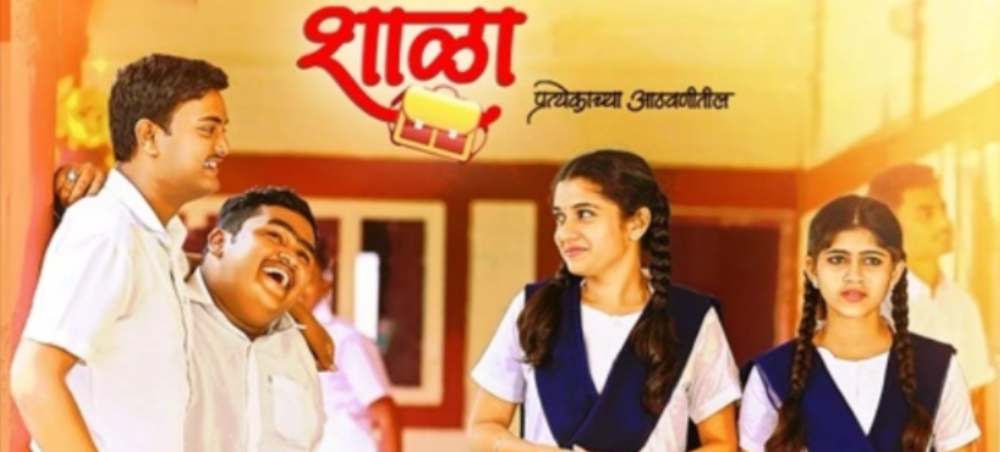Shala Web Series: Cast and Overview

Shala Web Series
“Shala” is a critically well-received Marathi film that was released in 2011 with the direction of Sujay Dahake. The film is a reworking to Milind Bokil’s novel of same title. It is set in the 1970s and focuses upon the life of four ninth grade students from a small community in Maharashtra. The story explores the innocence of adolescence the pain from first romance, as well as the social norms of the day.
Main Cast:
- Anshuman Joshi in the role of Mukund Joshi Anshuman is the main character, Mukund, a sensitive and reflective teenager who is a victim of the challenges and triumphs of love in the midst of adolescence.
- Ketaki Mategaonkar in the role of Shirodkar: Ketaki plays Shirodkar Mukund’s love interest. Her character captures the beauty as well as the innocence girl living in a strict society.
- Dilip Prabhawalkar in the role of Appa: Veteran actor Dilip Prabhawalkar plays his role as Appa Mukund’s grandfather. giving advice and support for the young protagonist.
- Nandu Madhav in the role of Mr. Joshi: Nandu Madhav is Mukund’s father. a strict and compassionate paternal figure that was typical of the era.
- Amruta Khanvilkar in the role of a Teacher: Amruta plays a school teacher, illustrating the environment of education and social expectations set for the young.
- Ashwini Giri plays Mrs. Joshi: Ashwini is Mukund’s mom, which reflects the caring aspect of his childhood.
- Santosh Juvekar in Majarekar Sir The character of Santosh is one among the school’s teachers, which gives an extra dimension to the portrayal of the education system that was in place at the time.
- Jitendra Joshi plays Naru Mama Jitendra portrays Mukund’s father, who brings the humor of the character and a sense of humour to the dynamics of the family.
- Suhas Vedpathak, as Chitre: Suhas portrays one of Mukund’s closest companions which contributes in the camaraderie as well as youthful enthusiasm that characterize the movie.
- Omkar Mane in Phavdya: Omkar’s character is a friend of Mukund’s and adds to the dynamic of the group and the portrayal of life for teenagers.
- Ketan Pawar in the role of Surya: Ketan plays Surya and completes the cast of friends whose lives are the basis of the story.
- Snehal Ghayal plays Amba Bai His character adds to portrayal of the village and diverse characters who influence the main characters.
- Yogesh Dalvi in the role of Jangam Sir Yogesh is portrayed as a teacher, who contributes to the film’s exploration into the cultural and social standards of the 1970s.
- Shashank Shenda as Mhatre Shashank as Sheth The character of Shashank adds an element of depth to the setting, showcasing the local tradespeople, as well as their interactions with the local community.
- Ganesh Mayekar in the role of Ganoba: Ganesh plays an important role in the film, adding to the rich tapestry of the village life portrayed by the movie.
- Kaumudi Walokar in the role of anita Ambekar The character of Kaumudi is a part of the social setting by illustrating the interactions and relationships in the village.
- Unnati Agarkar, as Sukdi: Unnati’s role helps to depict the various personalities that inhabit the village and have an impact on the lives of the main characters.
- Mukta Vaidya in Kewda: Mukta’s character provides a new dimension to the social atmosphere that is the village drawing attention to the different relationships and expectations that society has.
- Abhijit Munekar in the role of Misal: Abhijit’s role improves the depiction of the educational environment, showing the interactions between students as well as teachers.
- Shruti Velankar in Mande: Shruti’s character enhances the story by highlighting the various aspects of the village and the people who live in it.
- Rajashree Khatavkar in Barve Bai Her character contributes to representation of the social structure of the community and the many influences that affect the young actors.
- Amol Gokhale in the role of Ghasu Gokhale The character of Amol adds depth to the setting of the village depicting the village’s inhabitants and their interactions with main characters.
- Sachin Dunakhe in the role of Pingale: Sachin’s role enhances the portrayal of the school environment and the social standards of the time.
- Prajakta Deshmukh in the role of Rege: Prajakta’s character enhances the story by showing the different interactions and relationships within the village.
- Sayee Gogate in the role of Mirikar: Sayee’s role helps to portray the community as well as the many people who influence the lives of the characters.
- Jyoti Sabale plays Gadre: Jyoti’s character is a further layer of the societal environment that is the community, showing the diverse relationships and societal expectations.
- Nidhi Chavhan’s role as Kulkarni: Nidhi’s role improves the depiction of village life by illustrating the dynamics and interactions within the community.
- Radha Pawar in Sarawte: Radha’s character is a key element in the film’s exploration of social norms and influences that affect teenagers as protagonists.
- Pratiksha Fanase, as Juvekar: Pratiksha’s role helps to depict the classroom environment and interactions between teachers and students.
- Shrikant Beloshe Teredesai: Shrikant’s character brings an element of depth to the village setting depicting the local population as well as their interaction with main characters.
- Vikrant Dhanawade in Shembekar Vikrant’s character enriches the film’s depiction of the community and the many individuals who make up it.
- Shekham Sonawane plays Harishchandra: Shekham’s character helps in the film’s exploration of the village providing authenticity and depth to the social backdrop that the film is set against.
- Tejas Dhotre in the role of Bhagubhai: Tejas portrays Bhagubhai as a minor, but significant character who increases the community spirit and intricate nature of relationships within the village.
- Prashant Gajanan in the role of Waghmare: Prashant’s role as Waghmare is a further illustration of the intricate professional and social interactions that are a part of the education system.
- Sandesh Kavale in the role of Patil: Sandesh plays Patil the character who assists in highlighting the notions of authority and culture within the rural setting.
The Essence of the “Shala” Cast
The cast that is diverse in “Shala” reflects the depth and depth of the story and each actor contributes to the real-life and emotional depiction that takes place in the tiny village in the 1970s. In the end “Shala” is a coming-of-age story and the cast is able to bring the joy, confusion, and awe of adolescence life.
The performance of the young actors, particularly Anshuman Joshi, and Ketaki Mategaonkar form the core of the film. Their ability to capture the emotions and complexities of love at first sight is among the most memorable aspects of the film. However, veterans like Dilip Prabhawalkar, and Nandu Madhav offer an authentic perspective, capturing their wisdom and expectations and challenges of the older generation.
The supporting actors like Jitendra Joshuai or Santosh Juvekar bring layers of humour, relatability and nuances, adding to the vibrant universe that is “Shala.” Each character–no regardless of their size–plays a crucial part in creating a rich story that is a hit with viewers across generations.
Why “Shala” Resonates
The power in “Shala” lies not only in its story telling, but it’s ability to touch universal themes like growing up and the effects on first-love, as well as the limitations of society in a past time. The actors breathe vitality into the themes of this film, making sure that each character is authentic and likable. It doesn’t matter if it’s the innocence of young people or the wisdom of elders or the camaraderie between friends The performances convey all the pleasures of childhood, yet emotionally challenging moment in time.
With its talented cast, “Shala” transcends cultural and linguistic barriers and is a hit with anyone who has ever been through the adolescent’s bittersweet experience. The success of the film is testimony to the ensemble’s capacity to stir emotions of nostalgia and compassion, making “Shala” a timeless piece of Marathi cinema.





